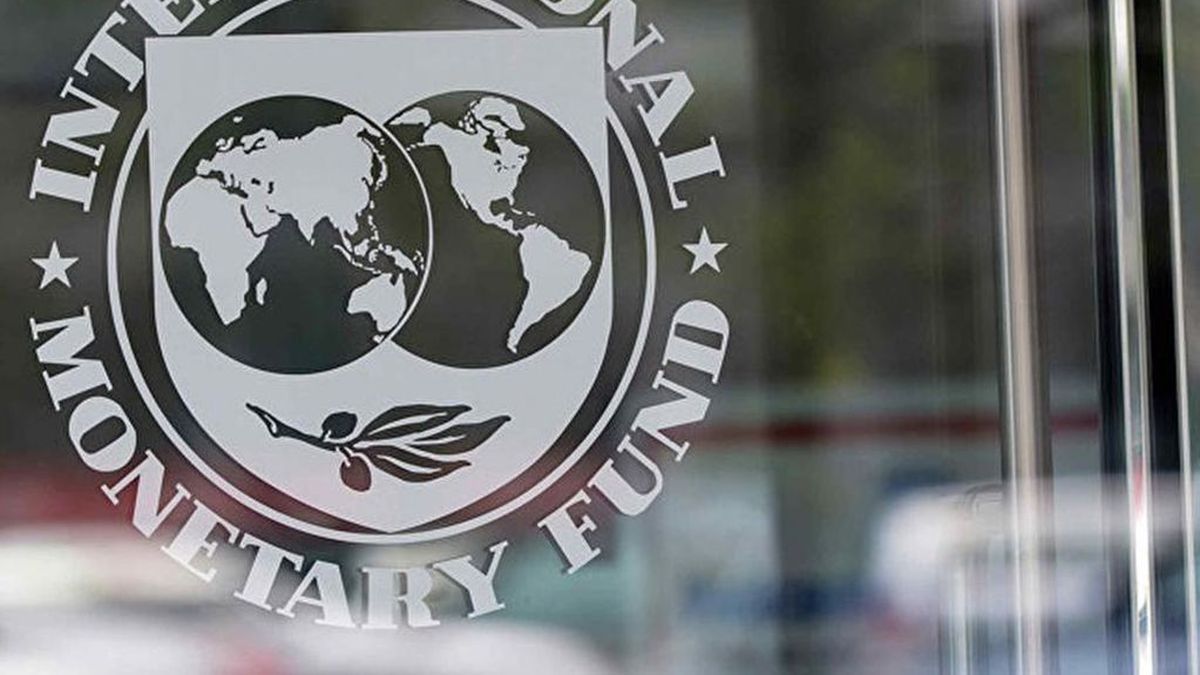The Stand-By loan approved to Argentina was the largest in the history of the organization
o Even considering only the disbursements actually made, the amounts drawn exceed the second place in the ranking of countries in the history of the Fund’s loans.
o If all the disbursements of the adjusted agreement in October 2018, totaling approximately USD 57 billion, had been met, it would have exceeded half of what the IMF disbursed during the pandemic to 85 countries.
o If only the actual disbursements are considered, US $ 44,000 million by the IMF in Argentina, to rescue the government of Mauricio Macri from its own economic model, the total granted to all the countries that are outside the orbit of the hemisphere is exceeded Western (according to IMF regional categories) in pandemic. In other words, the IMF’s monetary commitment to the continuity of the Cambiemos government is higher than the agency’s commitment to 64 other countries to face the crisis unleashed by COVID.
The 2018 program had the support of the United States under the government of Donald Trump. This country not only has its own seat in the Fund, but also has veto power in the body since with its vote it can prevent the necessary 85% consensus from being reached. The United States agreement is, then, a fundamental key to renegotiation.
o No other country or seat of the Executive Board exceeds 6.5% of the votes, most of them being shared by several countries.
o If the updating formula for representation in the body agreed in 2008 – which should be updated in 2016 – is respected, the United States should lose its veto power as its quota falls below the 15% necessary to block decisions with a majority aggravated. European countries would also lose votes, which would be distributed mainly in China and Southeast Asian countries. If this reformulation is accepted, China would reach an agreement with 1 or 2 minority partners to obtain veto power and challenge the traditional leadership of the body.
The agreement negotiated with the government of Cambiemos was plagued by formal breaches
o Among them, we can mention the non-record of administrative acts, the breach of art. 61 of the Law of
Argentine Financial Administration, the absence of proof of the prior opinion of the Central Bank of the Argentine Republic on the potential impact of credit on the balance of payments. Only the Letter of Intent and its attached memoranda are known, but are not linked to any prior study, report, opinion or technical opinion.
Disbursements were used to finance the permanent outflow of capital, contrary to what the IMF’s own statute establishes
o Section 1 of Art. VI of the IMF statute in its subparagraph a) indicates that “no member country may use the general resources of the Fund to face a considerable or continuous outflow of capital, and the Fund may ask the member country to adopt control measures to prevent the general resources of the Fund from being used for this purpose ”. However, as the report showed, since the beginning of the program, the equivalent of the resources received from the agency has been used to finance the formation of external assets.
o There was an irresponsible use of the disbursements since it is in the power of the parties to request and implement controls in order to stop, at least partially, the flight of foreign currency. Or, to put it another way, there were alternative policies that have the same potential to solve balance of payments problems, but with a much lower degree of indebtedness, and, ultimately, lower cost in foreign exchange, even within the parameters of policies allowed by the agency.
o Between January 2018 and December 2019, disbursements totaled USD 44,867 million, while the formation of external assets amounted to USD 54,099.
o In line with this analysis, it was former President Mauricio Macri himself who publicly stated in November 2021 that he had requested and used the IMF dollars to give them to commercial banks that wanted to leave the country.
In the 2018 agreement, at least 3 of the 4 criteria for an “exceptional access” loan – which allows exceeding the 187% quota limit – were defaulted
o The reference to the public debt being on a path of high probability of repayment in the medium term was openly defaulted. Gross public debt as a percentage of Gross Domestic Product had an explosive behavior in 2018, going from 57.1% in 2017 to 86.2%. This increase is mainly explained by the fall in the product, the IMF disbursements and the variation in the exchange rate, taking into account that 76.4% was denominated in foreign currency. But the interesting thing is to observe that, despite the recurring upward corrections in each of the IMF reviews (for example, in October 2018 it reached 81.2%), the sustainability of the debt also remained characterized as “sustainable, but with low probability ”and the slope of the subsequent curve became more pronounced to try to show that the goals for 2022 and 2023 were being maintained. None of this happened and in 2019 the ratio of debt to Gross Domestic Product reached 89.5 %. Only in February 2020 the IMF would recognize the unsustainable nature of the debt.
o The criterion referred to that the member country must have a favorable perspective regarding its return to the international credit markets in a term and amount that allows the repayment of the funds obtained by the organization was breached. The evolution of the Country Risk index, a thermometer of sovereign debt capacity, shows that, from the beginning of the program in 2018 to the end of 2019, it quadrupled. And if we take into account the time of the last disbursement made in the program, since the IMF’s return to Argentina it had doubled. There was no positive sign in the direction of an eventual return to the voluntary debt market since the arrival of the agency that would allow us to imagine a favorable outcome. However, the disbursements continued until the change of government became inevitable, with the defeat of Mauricio Macri in the 2019 primaries.
o The criterion that the program proposed by the member country must have a sufficiently strong prospect of success, not only in technical terms, but also in terms of institutional and political capacity to carry it out, was not met either. The mechanism to endorse the political consensus was related to the signing of a ten-point agreement with a sector of Peronism. But the agreement was limited to a small portion of the opposition space and was not even signed. Additionally, the statements and proposals of the main opposition space that demanded “that the agreement with the IMF go through Congress” were ignored. Contrary to what the agency is currently demanding, that agreement never reached Congress.
o The Board of the international organization did not ensure the preservation of resources, considering reasons of a political nature. It is at least curious that those who could not respect their own statutes have the interference that they had (and have) on the Argentine macroeconomy.
All recommendations of the IMF’s Independent Evaluation Office (IEO) were ignored
o Already in 2004, the Independent Evaluation Office, responsible for auditing the body, had identified the same problems as in the 2018 agreement. These are the textuals of that 2004 document: “The Executive Board did not fully comply with its responsibility for follow-up and did not discuss the potential advantages and disadvantages of different options. To some extent, all of this appears to reflect the fact that some key decisions were made outside the Board and that management considered some critical issues too sensitive to openly discuss in plenary sessions of the Board. ” Again, the same stone.
o Even in 2020, a new IEO report repeated the criticisms regarding the dismantling of exchange controls and financial deregulation, but they never assumed responsibility.
The review of the disbursements was carried out with a clear political purpose of financing the electoral campaign of Cambiemos
o The design of the disbursement schedule, since June 2018, was aimed at electorally shielding Cambiemos and not at solving the underlying problems of the balance of payments. The reconfiguration of the schedule just 3 months after signing, in September 2018, demonstrated this objective, determining that almost 90% of the payments were made before the June 2019 primary elections.
o This was stated by Mauricio Claver-Carone, who held the chair corresponding to the United States government on the IMF board. And in the same direction have declared other participants of the agreement.
o The purpose of the agreement was to intervene in local politics, shielding Mauricio Macri’s government from the costs of its own policies and underfunding the next government.
The repayment structure signed in the 2018 agreement was always, from any point of view, unpayable for the country
o For the current year (2021), a total of USD 5,072.31 million was paid to the IMF (considering capital and interest), representing 45% of the total maturities for the year. In 2022 this amount reaches a total of USD 18,901.66 million and in 2023 USD 19,144.56 million.
Source From: Ambito
David William is a talented author who has made a name for himself in the world of writing. He is a professional author who writes on a wide range of topics, from general interest to opinion news. David is currently working as a writer at 24 hours worlds where he brings his unique perspective and in-depth research to his articles, making them both informative and engaging.




